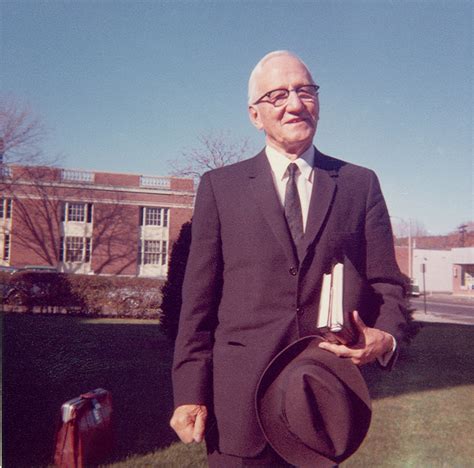A Quote by Carl F. H. Henry
The evangelical task primarily is the preaching of the Gospel, in the interest of individual regeneration by the supernatural grace of God, in such a way that divine redemption can be recognized as the best solution of our problems, individual and social
Related Quotes
Many years ago I was driven to the conclusion that the two major causes of most emotional problems among evangelical Christians are these: the failure to understand, receive, and live into God's unconditional grace and forgiveness; and the failure to give out that unconditional love, forgiveness, and grace to other peopleWe read, we hear, we believe a good theology of grace. But that's not the way we live. The good news of the Gospel of grace has not penetrated the level of our emotions.
There is no better test as to whether a man is really preaching the New Testament gospel of salvation than the fact that some people might misunderstand it and misinterpret it to mean that it really amounts to this–that because you are saved by grace alone it does not matter at all what you do, that you can go on sinning as much as you like because it will abound all the more to the glory of grace. That is a very good test of gospel preaching. If my preaching and presentation of the gospel of salvation does not expose it to that misunderstanding, then it is not the gospel.
Salvation is accomplished by the almighty power of the Triune God. The Father chose a people, the Son died for them, the Holy Spirit makes Christ's death effective by bringing the elect to faith and repentance, thereby causing them to willingly obey the gospel. The entire process (election, redemption, regeneration) is the work of God and is by grace alone. Thus God, not man, determines who will be the recipients of the gift of salvation.
To reverse the trend and reduce the role of government in our lives, and thus alleviate the government deficit and inflation pressures, is a giant educational task. The social and economic ideas that gave birth to the transfer system must be discredited and replaced with old values of individual independence and self-reliance. The social philosophy of individual freedom and unhampered private property must again be our guiding light.
The call of God is to preach the gospel--namely, the reality of redemption in our Lord Jesus Christ. The one passion of Paul's life was to proclaim the gospel of God. He welcomed heartbreak, disillusionment , and tribulation for only one reason--these things kept him unmovable in his devotion to the gospel of God.
The term 'charisma' will be applied to a certain quality of an individual personality by virtue of which he is considered extraordinary and treated as endowed with supernatural, superhuman, or at least specifically exceptional powers or qualities. These are such as are not accessible to the ordinary person, but are regarded as of divine origin or as exemplary, and on the basis of them the individual concerned is treated as a 'leader.
Perhaps the most difficult task for us to perform is to rely on God’s grace and God’s grace alone for our celebration. It is difficult for our pride to rest on grace. Grace is for other people—for beggars. We don’t want to live by a heavenly welfare system. We want to earn our own way and atone for our own sins. We like to think that we will go to heaven because we deserve to be there.
We deem valuable whatever is likely to meet our needs or wishes (individual values) and whatever is likely to help protect or attain social goals (social values). However, this is not a dichotomy, for some individual values, such as truth, are needed to secure some social values, such as mutual trust, and some social values, such as peace, are required to pursue some individual values, such as good health.
Faith is precisely the paradox that the single individual as the single individual is higher than the universal, is justified before it, not as inferior to it but superior - yet in such a way, please note, that it is the single individual who, after being subordinate as the single individual to the universal, now by means of the universal becomes the single individual who as the single individual is superior, that the single individual as the single individual stands in an absolute relation to the absolute.

































